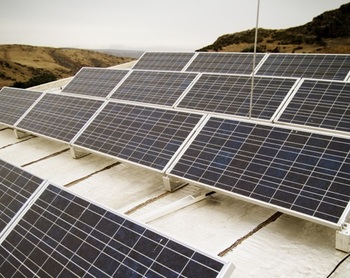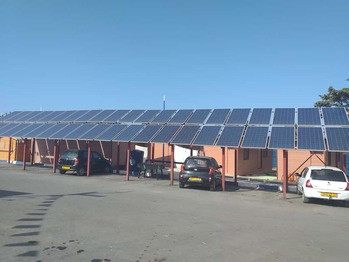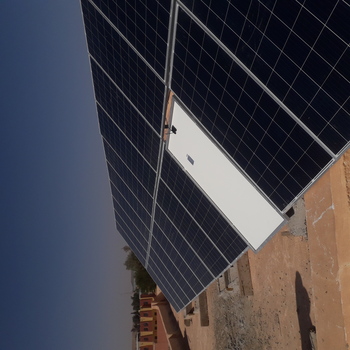Climate-friendly energy management in Algerian municipalities
Project description
Title: Green Municipalities
Commissioned by: German Federal Ministry for Economic Cooperation and Development (BMZ)
Country: Algeria
Lead executing agency: Ministry of the Interior, Local Authorities, and Territory Planning (MICLAT)
Overall term: 2020 to 2023

Context
Although the Algerian Government has stepped up its efforts, the municipal energy transition process is still in its infancy. The municipalities themselves are in need of technical expertise and methodological approaches along with organisational tools and financial incentives. Project support is intended to enable Algeria’s municipalities to design and implement effective and practice-oriented energy action plans and to assess their impacts.
Objective
Looking ahead, energy management in the Algerian pilot municipalities is improved in terms of its climate-friendliness and cost-effectiveness thanks to greater use of renewable energy (RE) and energy efficiency technologies (EE technologies).

Approach
The project is working with the Algerian Ministry of the Interior, Local Authorities, and Territory Planning (MICLAT). Other key implementation partners are Algeria’s Ministry of Energy and Mines (MEM), its Ministry of Energy Transition and Renewable Energies and the Ministry of Water Resources and the Environment (MTEER) along with the respective administrative bodies and elected representatives in the pilot municipalities.
The project is providing Algeria’s municipalities with the expertise they require to implement a locally aligned energy policy that contributes to the country’s National Strategy of Energy Transition. At the same time, stakeholders from government institutions, the business sector and civil society can reference these municipalities as model examples of a successfully implemented energy policy.
The project consists of four components:
Component 1 supports the four pilot municipalities with the development and rollout of their energy action plans. Furthermore, it helps disseminate these energy solutions to other municipalities. The project is scheduled to implement two pilot measures in each pilot municipality respectively.

Component 2 aims to foster inter-municipal technical exchanges and to develop two regional networks. Interacting in this way will enable the municipalities to share their best energy management practices and also retain access to expertise. Energy accounting software is to be introduced in the 30 local districts taking part in the project. This will make it possible to measure and oversee progress in RE and EE rollout. Furthermore, the project will help develop several training strategies for the field of energy management, internal workflow organisation and the collection, analysis and use of energy consumption data. It will also subsequently help mainstream these strategies in the municipalities.
Component 3 aims to establish local value chains for RE and EE solutions, thus improving the quality and financial viability of companies along the value chain. Key measures include the rollout of quality standards for products, services and technical systems. Furthermore, it is planned to train and certify local suppliers. Moreover, the project provides technical guidelines and conducts professional training in a bid to raise capacity in the planning, contracting and operational phases respectively.
Component 4 is dedicated to technical consultancy for MICLAT, the objective being to create a financial and administrative incentives framework that Algerian municipalities can leverage to construct RE systems and improve EE technologies. Furthermore, this component also aims to advise the MEM on the creation of a legal framework for small-scale solar plants, enabling them to feed their surplus into the low-voltage network.
Last update: October 2021